Freelance writing is a great way to make money and work from home. The freedom it offers and the ability to work on a huge range of exciting projects makes it a super popular career path.
In this guide, I’ll discuss how you can get started in freelance writing and give you some tips on how to market yourself and find work, based on my own success as a freelance writer. So, let’s dive in and discuss how freelance writing works!
What Is Freelance Writing?
Freelance writing is a type of work that involves creating written content for clients. This could include blog posts, articles, website copy, press releases, and other types of text-based projects. Freelance writers are self-employed and have the freedom to choose which projects they want to take on and when they will work on them.
Freelance writers exist all over the world, and many do it as a part-time gig alongside their full-time job. While others use it as their sole source of income. It’s a suitable choice for all kinds of people, from students to those just looking to make some extra cash!
The Pros & Cons Of Freelance Writing
Freelance writing offers numerous advantages, such as the ability to work from anywhere, flexible hours, and potentially higher earnings than a traditional job. But it also comes with some drawbacks that you need to consider before taking the plunge into self-employment. Let’s take a quick look at some freelance writing pros and cons.
The Pros
On the plus side, freelance writers enjoy more freedom when it comes to choosing their own projects and determining their rates. This allows you to pursue interesting topics or genres that you are passionate about. Which can make it easier to find satisfying work.
Freelancers also typically have fewer expenses than those with full-time office jobs. Since they don’t need to pay for things like commuting costs and work clothing.
Note: Freelance writing does come with some expenses, as you might still need to pay for things like computers and software. To learn more, check out my guide to freelancing business expenses.
The Cons
Working as a freelance writer also comes with its own set of challenges. For example, finding consistent clients can be difficult and you might run into payment disputes.
You also have to deal with more administrative tasks or paperwork than you might be used to, such as invoicing and taxes. The lack of employer-provided benefits can mean paying out of pocket for health insurance and other necessities, depending on where you live. And this can make freelance writing a tough career for many.
Overall, freelance writing is a great way to make a living while still maintaining flexibility and independence. But it’s important to understand both the advantages and disadvantages before taking the plunge. So that you can make an informed decision about whether this type of work is right for you.
So, what are some examples of the kinds of freelance writing jobs out there?
4 Types Of Freelance Writing Jobs
1. Blog Posts/Articles
This is one of the most popular types of freelance writing jobs, and it involves writing blog posts or articles for businesses or websites. The topics can vary from industry-specific topics to general lifestyle topics, depending on the client’s needs.
These can range in length from a few hundred words to several thousand. Pay tends to be on the average side here, often on a per-word basis. But it really depends a lot on the niche and your clients.
Jobs may be marketed as “blog/article writing” as they are often used to mean the same thing.
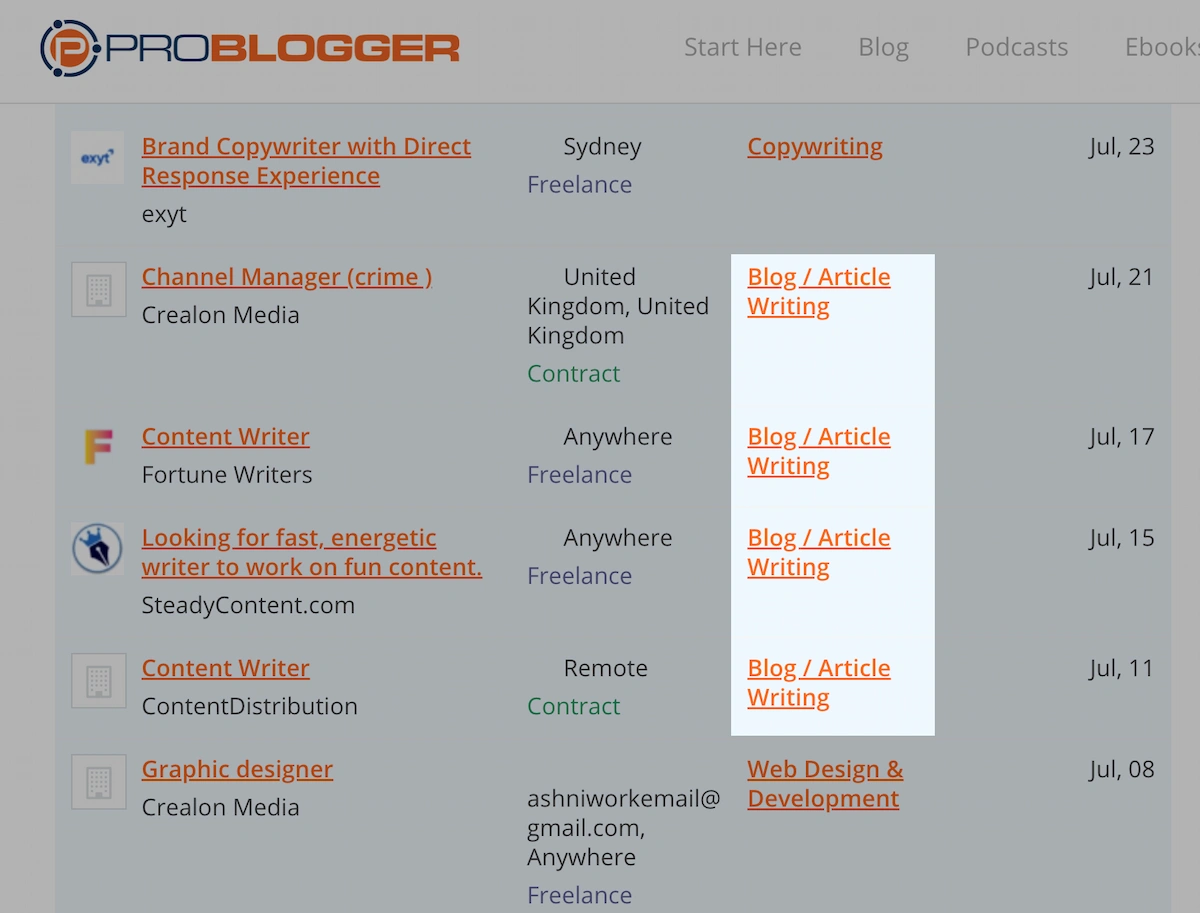
They usually involve researching a topic and providing well-researched facts and evidence to back up the article’s claims.
2. Website Copy
Website copy is any text that appears on a company’s website. Such as landing pages, product descriptions, and about pages. It should be engaging while also communicating essential details about the brand or product.
Like article writing, website copy jobs may include blog writing too. But generally it’ll be for things like about and contact pages, and copy about the business in general. Pay varies a lot here, largely depending on the nature of the client.
3. Copywriting
Copywriting is usually designed to sell a product or convert a reader into a subscriber or paying customer. This involves more marketing than blog posts do, and you’ll need to have a keen eye for selling if you want to be a successful copywriter.
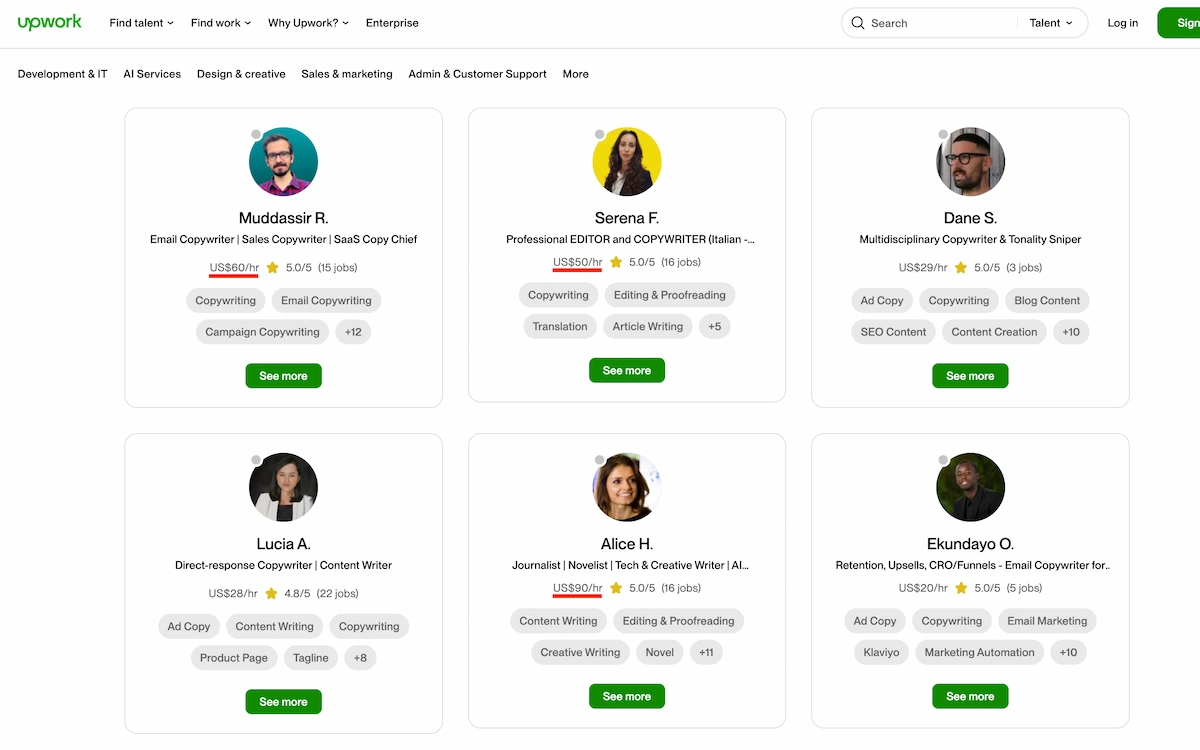
As the name of the copywriting game is selling or converting, the pay can generally be quite high. You can learn more about this type of writing in our guide to content writing vs copywriting.
4. Ebooks
Ebooks are digital books that provide a comprehensive overview of a particular topic. Freelance writers can create ebooks for clients that contain relevant research, facts and advice about their industry or niche.
These are typically quite long, and are often very lucrative projects for those with the necessary skills and expertise. But they are time and effort intensive.
Who Can Become A Freelance Writer?
Anyone can become a freelance writer as long as they have the writing skills and self-discipline to take on projects and meet deadlines. You also need to be able to effectively market yourself and find clients who are willing to pay for your services.
The kinds of people that should consider freelance writing include:
- Those who have a strong command of the English language (or the language your clients are working in)
- An interest in writing (duh)
- People with knowledge on specific topics, such as business, technology, health, fashion and more (although generalist writers can do well too)
- Creative thinkers who can come up with engaging content ideas
- Self-motivated individuals who can meet deadlines while managing their own workload
The kinds of people that shouldn’t consider freelance writing include:
- Those who are not confident in their writing skills (and unwilling to put the time in to improve)
- People who lack the self-discipline to manage their own workload
- Anyone who is not able to market themselves and find clients
How To Become A Freelance Writer
1. Develop Your Writing Skills
Becoming a successful freelance writer requires having a strong command of the relevant language and solid writing skills. To develop your skills, consider taking online courses or reading books on grammar, punctuation, and other aspects of writing to improve your ability.
A quick search on Google will bring up lots of course options.

Reading and absorbing guidance is great. But actually putting words on paper (real or virtual) is one of the fastest way to improve your skills. Consider writing on Medium or just in a word document to find out what you enjoy writing about. And also get feedback if you can (from family, friends, or fellow writers) to understand where you need to improve.
2. Create A Portfolio
To show potential clients that you are a capable writer, create a portfolio that showcases your best work. This could include blog posts, articles and other pieces of content you have written or created.
Once again, Medium is a great way to put together a writing portfolio.

But you can also use a wide range of free and paid portfolio creators, such as Contently.
3. Find Clients
Once you have a portfolio of writing samples, you can start looking for clients who need your services. Consider joining online freelance platforms like Upwork or Fiverr to find your first clients. (Although I’ll admit that the Fiverr landscape has changed and become a lot more competitive than when I first started.)

You can also use LinkedIn or cold pitch prospective clients directly via email. But this will typically take a while and involve a lot of rejection.
Further reading: How To Deal With Rejection As A Freelancer
4. Set Your Rates
You’ll also need to establish your rates for writing projects. This will depend on the type of project and your level of experience as a freelance writer. And you’ll need to choose a pricing model. Common ones include:
- Per word (most common for beginners)
- Per project
- Per hour (less common)
As you gain more skills and experience, you’ll be able to raise your prices accordingly. For a full guide, check out this article on setting freelance writing rates.
Now let’s look at more tips for getting your first clients.
How Do You Find Clients As A Freelance Writer?
As a freelance writer, finding clients is essential for building a successful and sustainable career. While it can be challenging to start from scratch, there are several effective strategies you can employ to attract clients and establish yourself in the industry.
Create An Online Presence
Firstly, creating an impressive online presence is crucial. Set up a professional website or portfolio that showcases your writing samples, expertise, and contact information. And optimize your website for search engines to improve your online visibility.
For example, I specialize in search engine optimization (SEO), both in terms of offering SEO services, and writing/editing for the niche. So when someone searches my name plus SEO, they see these kinds of results:
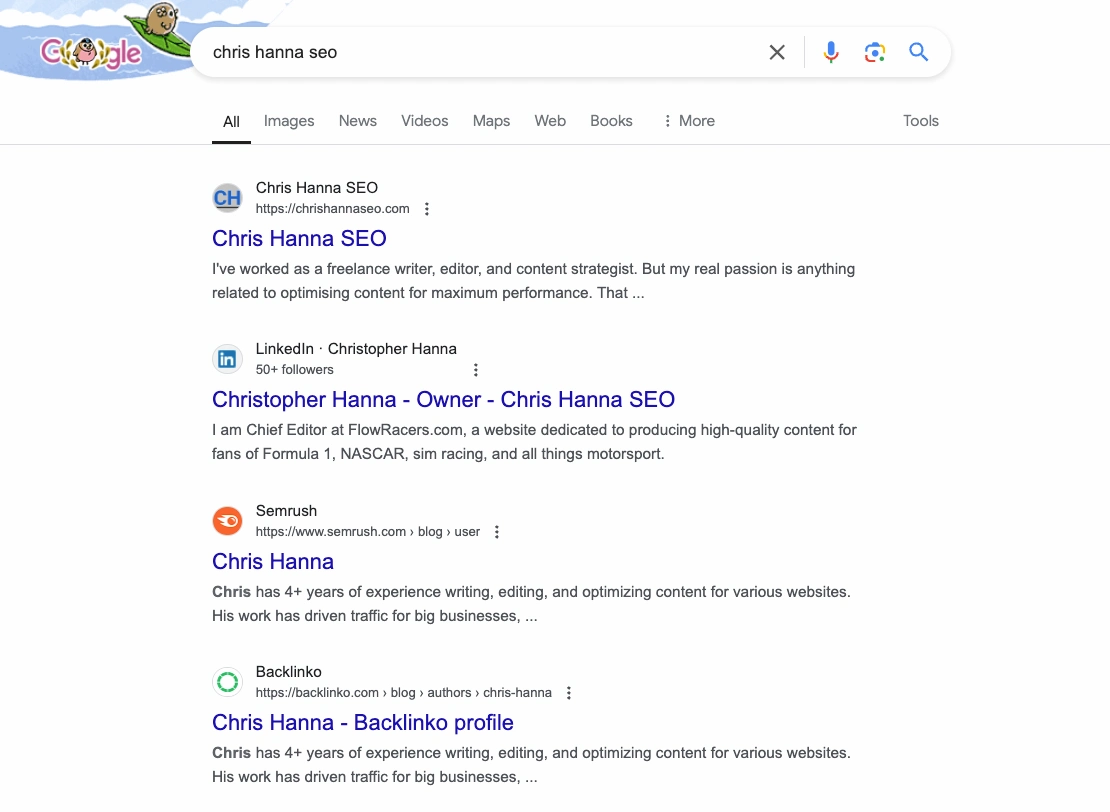
Also join relevant social media platforms like LinkedIn (you’ll see my account ranks second above), Twitter (now X), or Instagram. And actively engage with the writing community by sharing valuable content and networking with potential clients.
On that note…
Network
Networking plays a vital role in finding clients as a freelance writer. You can do this virtually, using platforms like those I mentioned above. And by joining online writing forums or communities to connect with fellow writers and potential clients.
Like the freelance writing subreddit:
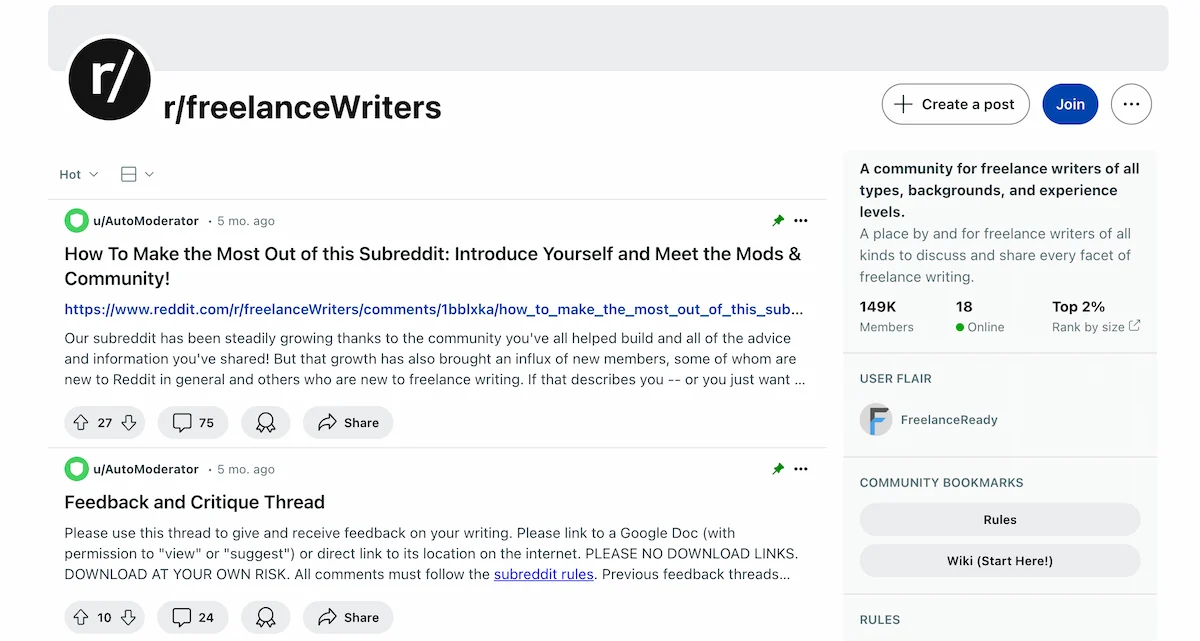
But you can also attend industry conferences, workshops, and local events where you can meet professionals who may need writing services.
Don’t hesitate to reach out to your existing network and let them know about your freelance writing services. They may have connections or referrals that can lead to new client opportunities.
Use Freelance Marketplaces
Use freelance job platforms and job boards to find writing gigs. Websites like Fiverr, Freelancer, and Upwork offer a wide range of freelance writing projects. Create a compelling profile on these platforms, highlighting your skills, experience, and expertise.

If you don’t want to go the platform route, you can check out these freelance writing job boards:
Try Guest Posting
Another effective way to find clients is through guest blogging or contributing articles to established websites or publications in your niche. Write high-quality, informative articles that demonstrate your expertise and submit them to relevant sites.

Include a brief author bio with a link to your website or portfolio (if allowed) to attract potential clients who resonate with your writing style and subject matter.
Cold Pitch Potential Clients (High Effort)
Cold pitching is a proactive approach that can yield positive results, but it requires A LOT of effort. Start by researching potential clients or companies that align with your writing niche. And then send them personalized pitches.
Craft a compelling email that highlights how your writing services can add value to their business or publication. Be concise, professional, and make it clear how your expertise can solve their specific problems or meet their content needs.
Be prepared for a lot of rejection here, but it can get you on the right people’s radars!
Offer Some Free Projects
Lastly, consider offering your services at a competitive rate. Or even taking on a few free projects in the beginning. This can help you build a strong portfolio, gain valuable experience, and establish relationships with satisfied clients who may recommend you to others.
But don’t offer too much for free! And don’t do it too often.
Clients may try to take advantage of this, and I only recommend doing this once or twice in the beginning—if at all. It can be a good way to get some early testimonials, but working for free is not a sustainable practice.
How Do Freelance Writers Get Paid?
Freelance writers get paid for their services in a variety of ways. Depending on the job and contractual arrangement with the client, you may be paid by the hour, per word or project, or a combination of both. Many freelance writers also charge a flat rate fee for their work.
Hourly Rates
When working on an hourly basis, clients pay you according to the number of hours you have worked. Hourly rates vary depending on your experience level, type of project, and industry standards in your location.
It’s important to research current market rates from freelancers offering similar services before setting your own rates. This will help you ensure that you are charging what you’re worth.
Note: Hourly rates aren’t all that common for beginner freelance writing jobs.
Per Word
Per word payments are often used when writing copy or content pieces for websites or publications. You will be paid according to the number of words you write. The rate per word usually depends on the type of project, complexity, and how much research is required. And of course your experience and skills.
This is common for beginner writing jobs, and it does mean the faster you write the more you get paid per hour. However, you need to balance this with the quality of your work.
Flat Rate
Flat rate payments are typically used for more complex writing projects, such as book chapters. This payment method involves pricing a project in advance, based on factors such as scope, complexity, delivery timeframes, and expected workload.
It’s important to do your homework before agreeing to a flat rate fee. So that you can calculate an accurate estimate of your hours spent on the project and ensure you’re earning a fair wage.
Retainers
Finally, some freelance writers also opt for retainer arrangements with their clients. This involves being hired on an ongoing basis to provide your writing services.
You typically negotiate a rate for retainer contracts ahead of time. And payment is usually made monthly or every two weeks.
How Taxes Work For Freelance Writers
As a freelance writer, you’ll be responsible for filing your taxes on time. While this may seem daunting at first, there are steps you can take to make tax season easier and ensure that you’re in compliance with the law. The specifics will vary depending on where you live, and the following is not financial or legal advice—consult a professional for that!
It’s important to track all of your income and expenses throughout the year so that you can accurately report them when the time comes to file taxes. Make sure you keep detailed records of any payments you receive, as well as expenses related to your business. Depending on where you live, you may need to make more than one tax payment per year.
This is the case in the UK, where sole traders need to make payments on account.
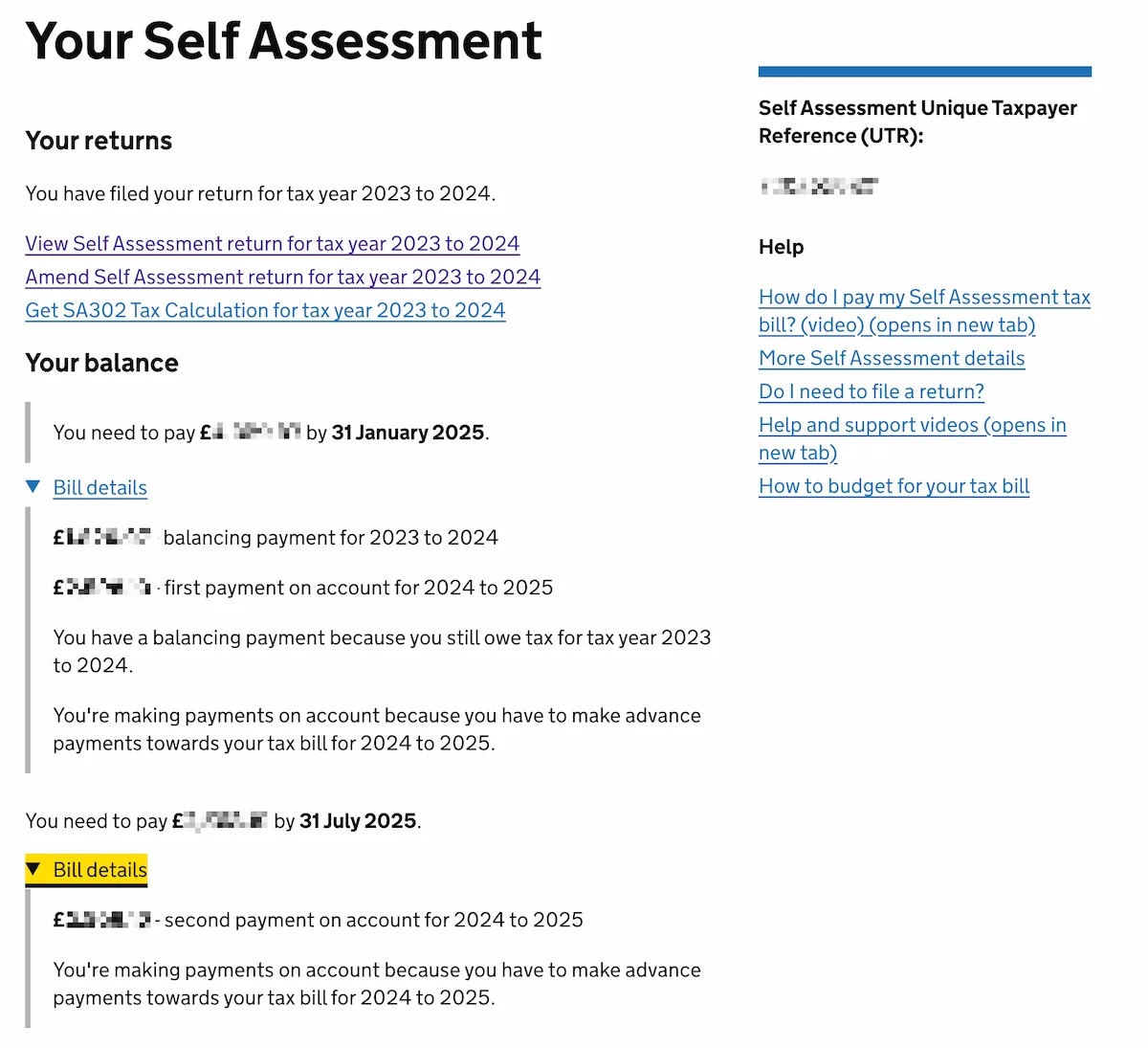
Finally, consider hiring a qualified accountant and/or lawyer to help manage your taxes and ensure you’re compliant with all relevant regulations. This will save you time and prevent costly errors or misunderstandings.
You might not need to do this in the beginning (or ever). But it might help give you some peace of mind.
Is Freelance Writing The Right Choice For You?
Whether or not freelance writing is a good choice for you will depend on lots of different factors. If you want to know more about the career and how to get started, check out my ultimate freelance writing guide.
Freelance Ready is reader-supported. That means some links on this website are affiliate links. If you sign up or make a purchase through these links, we may earn a commission.

